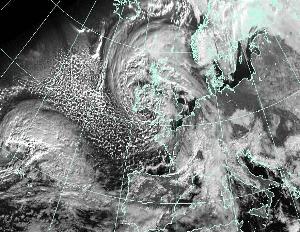Vice-Chancellor lays out University policy on climate change and fossil fuel investment
Release Date 16 October 2015

Sir David Bell, Vice-Chancellor of the University of Reading, wrote to Reading University Students' Union (RUSU) ahead of its Fossil Free Friday event, held on 16 October 2015.
Sir David outlined the University's position on climate change and how he is currently reviewing the University's full engagement with fossil fuel extracting companies - including financial investments.
The text of the letter is below:
I am writing to you to give you an update on the University's investment policy ahead of RUSU's Fossil Free event on Friday 16th October .
The University has a c£70m portfolio of investments across a series of endowment trusts. This gives us a secure long-term financial position - crucial in enabling us to invest more in frontline teaching, learning and research.
Our Investments Committee is responsible for setting and monitoring the University's managed endowed funds and for the appointment of investment managers. It sets the published Investments Policy, which is clear that we believe in socially responsible investments. We expect our investment managers, Sarasin, to take account of social, environmental and ethical considerations in their day-to-day decisions on our behalf and act as an engaged shareholder - including in regard to environmental, human rights and equal opportunities issues.
In July, the Investments Committee considered in detail RUSU's paper recommending a new investment policy. While the Committee did not accept the proposed RUSU policy, it asked me to look at the University's engagement with all aspects of the fossil fuels industry. This would include research funding and partnerships, sponsorships, studentships, and other collaborations. I expect to be able to report to the Investments Committee in the spring of 2016 on this matter.
In the meantime, our fund managers - Sarasin - will continue to advise on market trends and developments when it comes to socially responsible investment. That too will inform the work I am doing.
For the avoidance of doubt, my review should not be taken as an indication that the University is poised to change its policy. Rather, we need to have all the facts at our disposal before deciding what, if any, further actions that we might take. However, David Savage, our Chief Operating Officer, and I will keep you informed about developments.
In addition to the review, RUSU should also be aware of two additional, but important, issues.
First, the University has made reducing its own carbon footprint a priority. We have invested £3.1m since 2011 to cut our carbon emissions by 35% by 2016. We are on target to reach that goal, having already cut 26% of annual carbon emissions compared to 2008/09 - despite having more students and more buildings on campus.
Reading was listed as the third-best university in the country for its carbon reduction in a 2015 survey by sustainability consultants Brite Green. We must still do more, and we should not be complacent, but this is good progress. Becoming more sustainable requires not just strong institutional will and leadership, but also the co-operation of all our staff, students and visitors.
Second, the University's mission has at its heart being a world-class institution in research. As you know, Reading remains one of the world's leading centres for the study of weather and climate. Our scientific achievements in this area have been vital to the world's understanding of climate change and its effects. The Department of Meteorology, established for 50 years, has more than 200 research scientists working at the cutting edge of atmospheric physics.
The University's Walker Institute for Climate System Research brings together experts from across academic disciplines to focus on wider issues of climate change, such as energy, agriculture, urban planning and development. And the University played a leading role in last year's Intergovernmental Panel on Climate Change report, the most complete analysis of the causes of climate change ever put together. Reading provided more contributors than any other UK university to the IPCC and was one of the world's leading institutions in contributing scientific expertise.
Reading has a proud record, both in taking serious action to reduce our carbon footprint, and in our commitment to climate and environmental research. But neither would be possible without strong long-term financial foundations. So, in considering our future investment policy direction, we need to be mindful of a wide range of factors.
I hope your event on Friday goes well. I look forward to continuing our discussions in the weeks and months ahead.
Best wishes.
SIR DAVID BELL KCB
